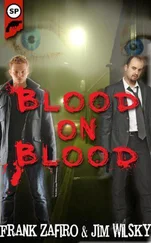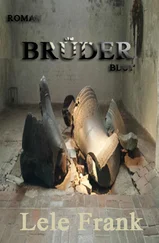Frank Tallis - Vienna Blood
Здесь есть возможность читать онлайн «Frank Tallis - Vienna Blood» весь текст электронной книги совершенно бесплатно (целиком полную версию без сокращений). В некоторых случаях можно слушать аудио, скачать через торрент в формате fb2 и присутствует краткое содержание. Жанр: Исторический детектив, на английском языке. Описание произведения, (предисловие) а так же отзывы посетителей доступны на портале библиотеки ЛибКат.
- Название:Vienna Blood
- Автор:
- Жанр:
- Год:неизвестен
- ISBN:нет данных
- Рейтинг книги:3 / 5. Голосов: 1
-
Избранное:Добавить в избранное
- Отзывы:
-
Ваша оценка:
- 60
- 1
- 2
- 3
- 4
- 5
Vienna Blood: краткое содержание, описание и аннотация
Предлагаем к чтению аннотацию, описание, краткое содержание или предисловие (зависит от того, что написал сам автор книги «Vienna Blood»). Если вы не нашли необходимую информацию о книге — напишите в комментариях, мы постараемся отыскать её.
Vienna Blood — читать онлайн бесплатно полную книгу (весь текст) целиком
Ниже представлен текст книги, разбитый по страницам. Система сохранения места последней прочитанной страницы, позволяет с удобством читать онлайн бесплатно книгу «Vienna Blood», без необходимости каждый раз заново искать на чём Вы остановились. Поставьте закладку, и сможете в любой момент перейти на страницу, на которой закончили чтение.
Интервал:
Закладка:
“My father is always-” Liebermann was about to say something indelicate but he changed his mind. “I fear that in some ways I may have disappointed him.”
“Who? Mendel? No, he's very proud of you, very proud. It's just… he wants you and your family, God willing, to be safe.” Jacob rapped his knuckles on the chair arm to underscore the virtues of security. “Our generation is less…” He searched for the right words. “Less at ease than yours-less confident that we can rely on the world to treat us kindly, or fairly.” Liebermann shifted uneasily at Jacob's use of the word “us.” “That's all it is. No, my boy, he is very proud of you-and so are we.”
Whereas Liebermann's father, Mendel, wore a long beard, giving him the appearance of a hierophant, Jacob sported only a small curled mustache. His hair had receded a little, revealing a high forehead, and a pair of small oval-lensed glasses rested on the bridge of his nose. He could still be described as a handsome man.
“You know, Max,” Jacob continued, “we've never had a professional in the family before.” Again, he drew on the cigar and exhaled a nimbus of smoke. “I had hoped that Konrad might be a doctor or lawyer, but, to be honest, I don't think he's got the brains. That's why he ended up with me, in the same business. There it is, none of us are satisfied with what we get-isn't that always the way?” He smiled benignly and took a sip of his brandy. “The thing is, Max, I wanted you to know that I understand how important medicine is to you. And after you and Clara are married… should you experience any problems-financial problems-you can always come to me if you require help. I'd much rather see my daughter married to a distinguished university professor than to a fellow tradesman, if you know what I mean.”
“Herr Weiss, that's very kind of you, but-”
Jacob Weiss held up his hand-an abrupt and decisive salute.
“Please don't mention our little discussion to Mendel, or to Clara for that matter. This is just between me and you.”
4
The desk was covered with papers and official forms. On one side sat Rheinhardt and, on the other, Haussmann. Although it was only early in the afternoon, the light was already failing.
“You couldn't get a cast?”
“No, sir.”
“Strange… The soil was quite soft.”
“He obviously trod on the stones, sir.”
“But when he was arranging the snake's body parts, he must have stood in the soil at the water's edge.”
Rheinhardt examined a close-up photograph of the dead anaconda.
“The only impressions I found were those of the director and the two keepers; however, these marks here…” Haussmann pointed to a curving ridge close to the snake's head. “They suggest that the perpetrator may have tampered with the soil.”
“He erased his tracks?”
“Yes, sir.”
Rheinhardt turned one of the sharp points of his mustache between his thumb and forefinger. “Which, if true, implies that our villain is familiar with our new detection methods.”
Haussmann nodded.
The ensuing silence became prolonged as the two men puzzled over the evidence.
“Sir?”
Rheinhardt looked up.
“Did Herr Arnoldt's memory return?”
“No. I interviewed him at the zoo and paid him a visit yesterday evening, but he had nothing new to add. The doctor still thinks there's a possibility something might surface, given time. But I'm not optimistic.”
Icy flakes had begun to settle on the windowpanes.
“It's started snowing,” Haussmann said softly.
Rheinhardt turned and glanced at the taupe-and-ash sky before confirming Haussmann's observation with a staccato grunt. Conscious of the fact that he may have seemed less than fully attentive, the assistant detective asked his superior a question. “Do you think there was a motive, sir? Or is this just the handiwork of a madman?”
“The latter, I imagine.”
“Then perhaps we should consult your friend Doctor Liebermann?”
“Indeed. It's certainly odd enough to arouse his curiosity.”
Rheinhardt cleared a space on his desk, opened a drawer, and removed a form, which he placed in front of him. Smoothing the paper with the palm of his hand, he sighed and said, “Well, Haussmann, I now have the unenviable task of writing my preliminary report. You will excuse me.”
Haussmann stood. As he did so, the telephone rang. Rheinhardt answered and identified himself, but said little as the attenuated voice of the caller crackled in the earpiece. The inspector's expression changed from disgruntlement to concern, and then to shock.
“Good God!” he whispered.
Haussmann sat down again.
Rheinhardt reached for his pen and scrawled an address on the report sheet.
“I'll leave immediately,” he said, and replaced the phone's receiver.
He did not, however, get up. Instead, he stared at the address, his eyebrows knitting together.
“Sir?”
Rheinhardt stirred, and looked across the desk at his assistant.
“Haussmann, something terrible has happened in Spittelberg.” His voice was tight with suppressed emotion.
“A murder?”
“No,” said Rheinhardt. “A massacre.”
5
The carriage crossed a streetcar rail and veered off in the direction of Spittelberg. Rheinhardt and Haussmann were preoccupied with their private thoughts-neither of them had been very talkative.
Out of the window, Rheinhardt saw briefly the impressive neo-Renaissance edifice of the Justizpalast. He silently implored the gods of jurisprudence for assistance. A maniac capable of performing such appalling acts of violence must be stopped immediately.
The carriage turned sharply along a narrow cobbled street.
“Spittelberg,” said Haussmann.
The contrast with the palatial law courts, only a short distance away, could not have been more marked. Although the houses had a certain antique charm, they were mostly dilapidated after generations of neglect. The buildings were of uneven height and size and the stucco paintwork was faded. But vestigial streaks of pink, ocher, and blue betrayed a more colorful and prosperous history.
The carriage negotiated a tight corner and rattled down a gloomy alley that was hemmed in on both sides by ramshackle dwellings. Washing lines hung overhead like oversize threads of spider's silk. Rheinhardt imagined a giant arachnid, its legs folded around its fat abdomen, waiting to pounce. The carriage escaped the squalid street and entered a small square. On one side was an inn, and nearby was a corner of plain walls around which ran a continuous undecorated metal balcony. In front of the inn was a melancholy fountain-a stunted black spire out of which feeble jets of water spurted into separate basins. The carriage turned again, but within moments the horses began to slow.
The driver had had no trouble identifying the detectives’ destination. It was a low two-story house, squashed between larger buildings and guarded by two constables. The men were blowing into their hands and stamping their feet on the ground, trying to stay warm. On the other side of the road, an elderly gentleman in a threadbare coat, scarf, and Bohemian hat had stopped to observe. He leaned on a knotted stick, his crooked back bent at a cruel angle. Apart from this solitary tatterdemalion, there were no other members of the general public present.
The carriage wheels ground to a halt.
Rheinhardt opened the vehicle's door, stepped down, and looked at the houses. The relics of more salubrious times were now clearly visible: relief cherub heads stared out blankly into space from below several window ledges. One building had a domed recess above the front door that was occupied by a figure of Saint Joseph, his aureole represented by radiating metal strips. A plump but weather-beaten infant Jesus was balanced in the crook of his left arm.
Читать дальшеИнтервал:
Закладка:
Похожие книги на «Vienna Blood»
Представляем Вашему вниманию похожие книги на «Vienna Blood» списком для выбора. Мы отобрали схожую по названию и смыслу литературу в надежде предоставить читателям больше вариантов отыскать новые, интересные, ещё непрочитанные произведения.
Обсуждение, отзывы о книге «Vienna Blood» и просто собственные мнения читателей. Оставьте ваши комментарии, напишите, что Вы думаете о произведении, его смысле или главных героях. Укажите что конкретно понравилось, а что нет, и почему Вы так считаете.












